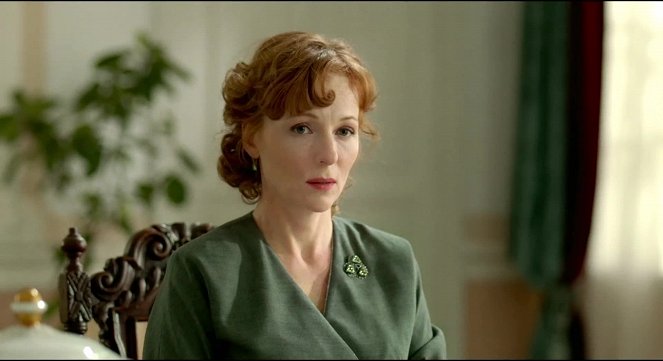Directed by:
Kantemir BalagovScreenplay:
Kantemir BalagovCinematography:
Kseniya SeredaComposer:
Evgeniy GalperinCast:
Viktoriya Miroshnichenko, Vasilisa Perelygina, Timofey Glazkov, Igor Shirokov, Ксения Кутепова, Константин Балакирев, Ольга Драгунова, Polina Kutepova (more)VOD (1)
Plots(1)
1945, Leningrad. World War II has devastated the city, demolishing its buildings and leaving its citizens in tatters, physically and mentally. Although the siege – one of the worst in history – is finally over, life and death continue their battle in the wreckage that remains. Two young women, Iya and Masha, search for meaning and hope in the struggle to rebuild their lives amongst the ruins. (Cannes Film Festival)
(more)Reviews (3)
With its complicated relationships, Beanpole presents an admirably difficult topic for its 28-year-old creator. In addition, the visuals perfectly convey the atmosphere of place and time, as well as the mood of the story and its characters. Although this type of depressing drama with a historical setting in old Russia is not exactly my cup of tea, I have to recognise Balagov’s artistic talent. What is he going to shoot when he becomes a seasoned master? The performances of both actresses are brilliant. However, the question is how much of that they had to act. The next day I raised my eyes from my cell phone while quickly walking in the city and, for a moment, I met the gaze of the passing Miroshnichenko (the actress who played the very complicated main character). It was precisely that look, and within it the reaction to a creature entering her comfort zone, which she was throwing at everyone in the film. It was chilling. [Cannes]
()
This Russian post-war drama about physical and mental wounds and how those wounds can set off another cycle of pain is both a welcome and necessary departure from the bombastic Russian propaganda of war epics. Furthermore, it also stands on its own as a depressing drama with claustrophobically vented emotions. A separate chapter presents the precise, masterful craftsmanship, from the dramaturgy of the colour palette and interiors through the excellent camera work to outstanding acting performances. The consistently implemented form can to some extent draw attention away from the core of the film, which is the weight of guilt and the futile attachment to a vision of happiness.
()
The setting in post-war Leningrad is merely a backdrop, as the story of Beanpole is actually universal, and given that the film almost exclusively tells it through the characters rather than the setting it champions, it's actually a bit misleading. The overuse of long close-ups of characters staring at each other, looking for answers or at least relief in each other's eyes, can ultimately degrade the power of this mode of expression because, as young sensitive directors will hopefully learn one day, a facial close-up is a terribly important and powerful type of shot that needs to find its place in a space and time that often no one has built here. It goes from a close-up in one space to a close-up in another space. While the cinematography and color work are occasionally impressive in the way they forgo the proffered grayness of the post-war big city and splash pastel colors in the promise of a gradual return to better times in the illustrations of Russian storybooks, it's ultimately useless when the film for all practical purposes forgets to work with that setup in the end. It's a shame Alexei German didn't get to make something from this era.
()

